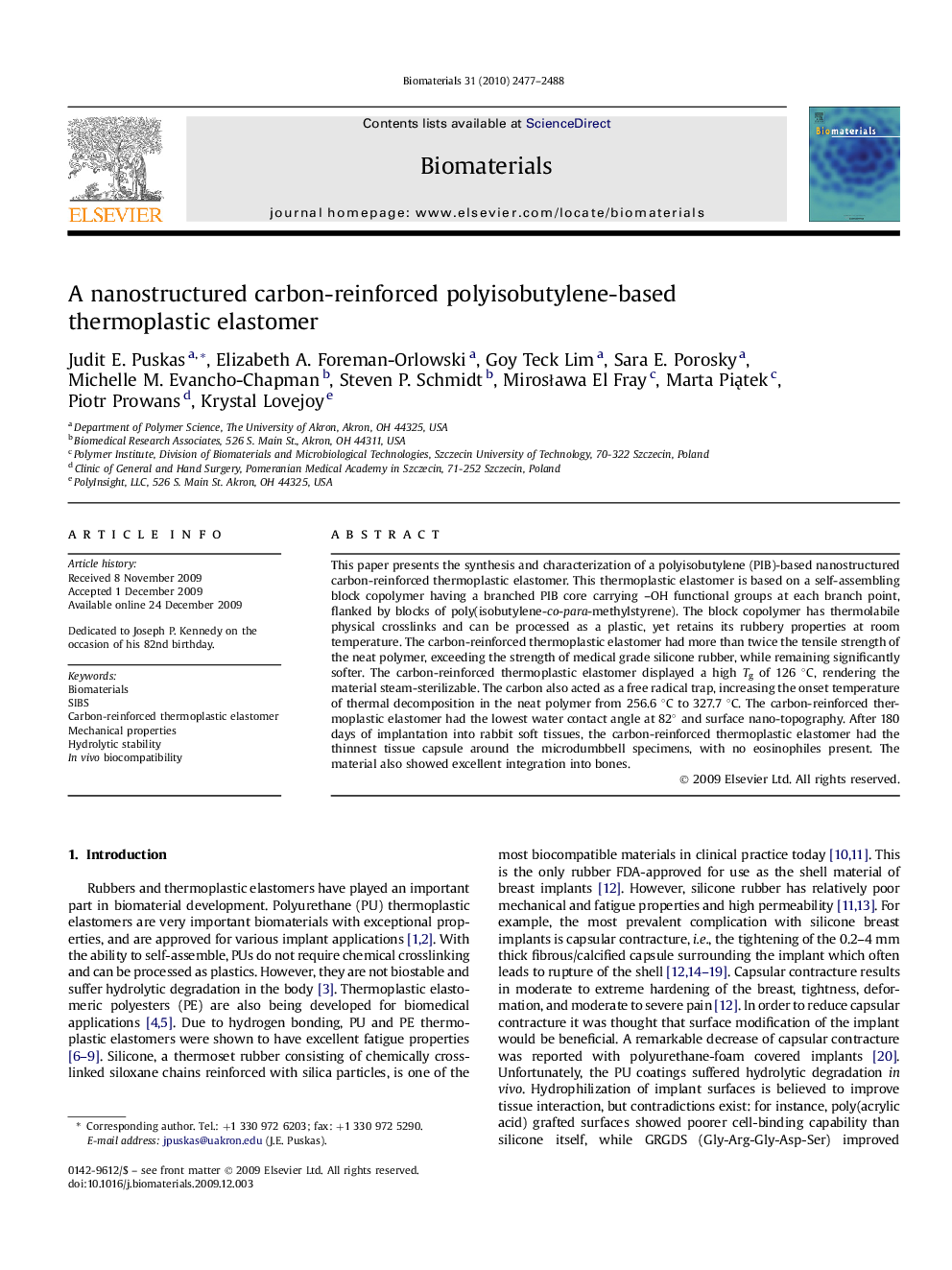| Article ID | Journal | Published Year | Pages | File Type |
|---|---|---|---|---|
| 8457 | Biomaterials | 2010 | 12 Pages |
This paper presents the synthesis and characterization of a polyisobutylene (PIB)-based nanostructured carbon-reinforced thermoplastic elastomer. This thermoplastic elastomer is based on a self-assembling block copolymer having a branched PIB core carrying –OH functional groups at each branch point, flanked by blocks of poly(isobutylene-co-para-methylstyrene). The block copolymer has thermolabile physical crosslinks and can be processed as a plastic, yet retains its rubbery properties at room temperature. The carbon-reinforced thermoplastic elastomer had more than twice the tensile strength of the neat polymer, exceeding the strength of medical grade silicone rubber, while remaining significantly softer. The carbon-reinforced thermoplastic elastomer displayed a high Tg of 126 °C, rendering the material steam-sterilizable. The carbon also acted as a free radical trap, increasing the onset temperature of thermal decomposition in the neat polymer from 256.6 °C to 327.7 °C. The carbon-reinforced thermoplastic elastomer had the lowest water contact angle at 82° and surface nano-topography. After 180 days of implantation into rabbit soft tissues, the carbon-reinforced thermoplastic elastomer had the thinnest tissue capsule around the microdumbbell specimens, with no eosinophiles present. The material also showed excellent integration into bones.
